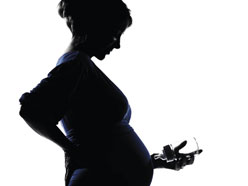
Currently, posthumously conceived children have rights in 12 U.S. states and one Canadian province (B.C.), says a recent blog post by Margaret O’Sullivan of O’Sullivan Estate Lawyers. These are children who are conceived after the death of a parent thanks to egg freezing or sperm donation, for instance.
And this is just the beginning, O’Sullivan notes. “We increasingly face the challenges of reproductive technology in estate planning.”
For public policy reasons, she explains, “Some jurisdictions have taken the stance that allowing [such] children inheritance rights would create impracticable obstacles in estate administration.
“[But] wills and trusts can be drafted to carry out each client’s objectives, even if legislatures drag their feet. Appropriate definitions can expand the definition of child and other lineal descendants to include those who are posthumously conceived and born after a death, but with certain conditions and limitations.”
For more on how rules are changing, read her full blog post.
Also check out:
Five ways to navigate blended-family finances
How many beneficiaries can clients have?